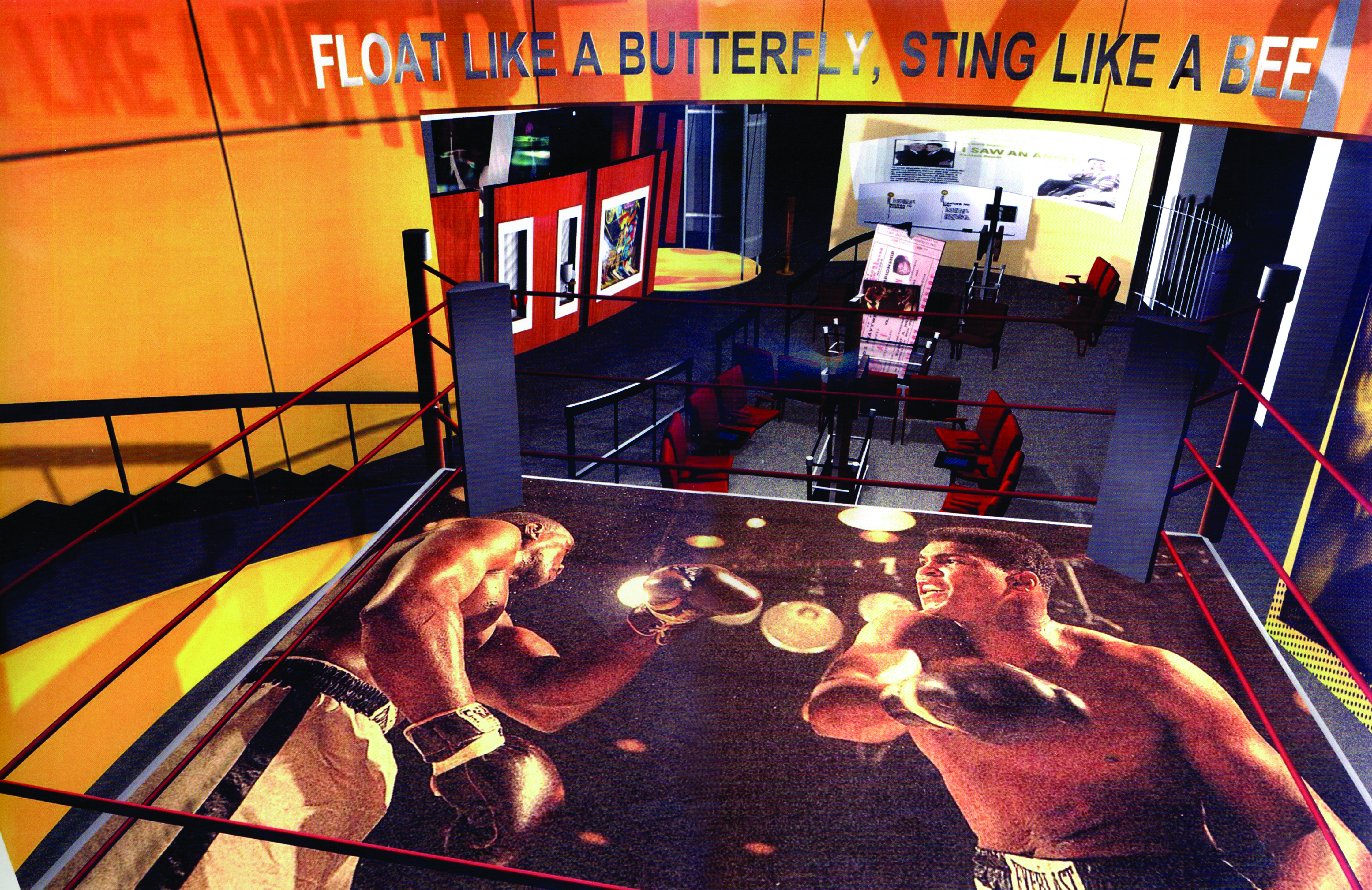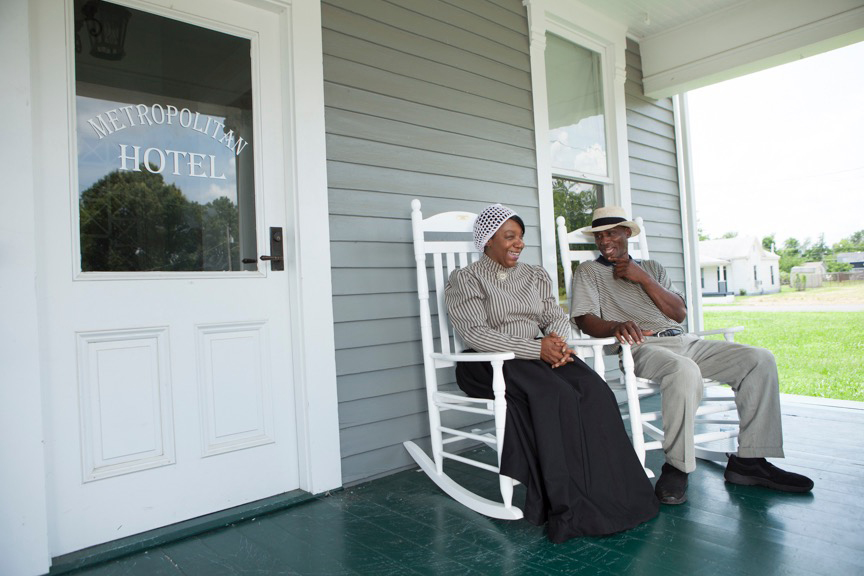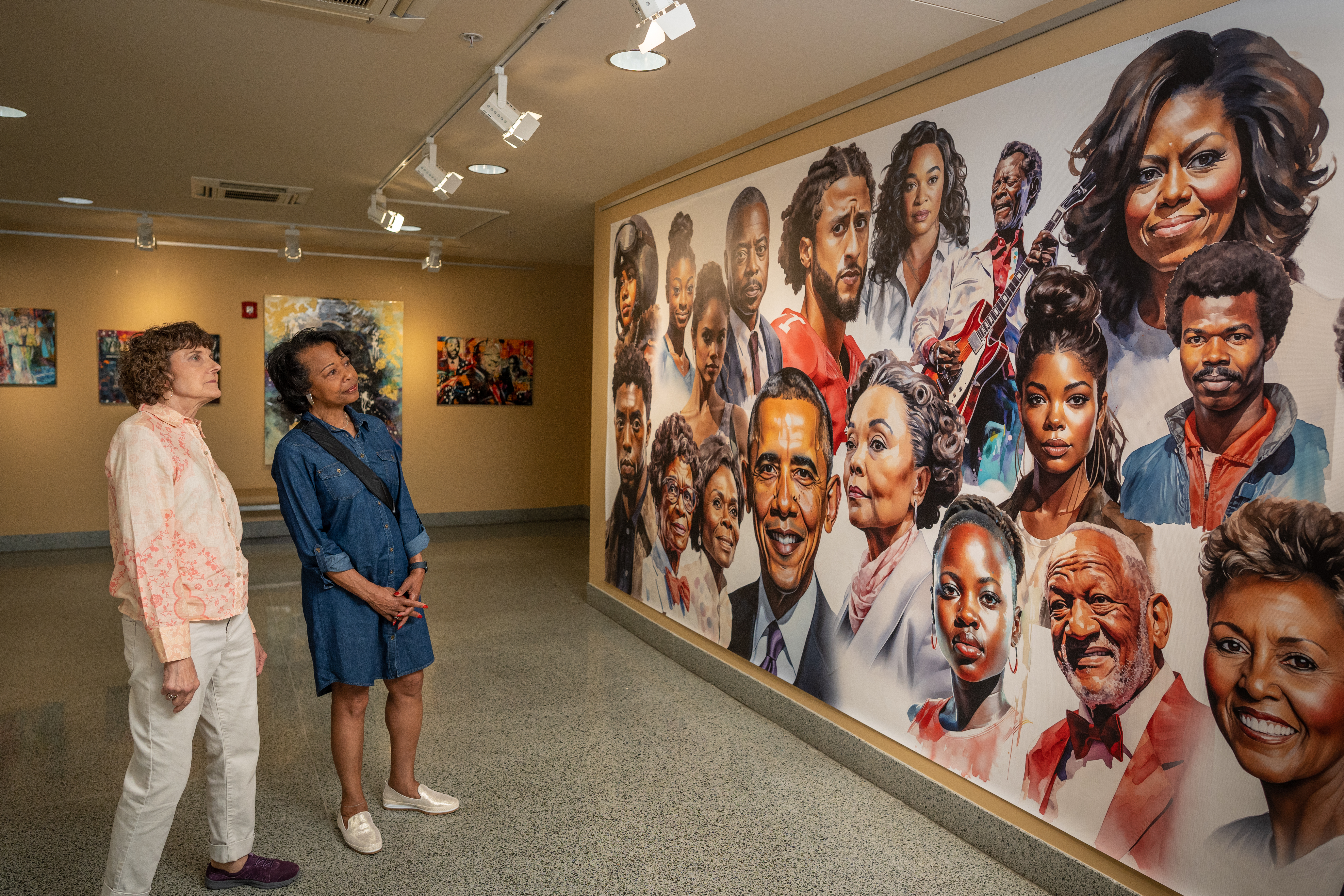5 Inspiring Destinations for Black Families in Kentucky
State Wide
African American history is not a separate category that is due to be relegated into small, tight corners. The history and stories of Black people who lived in Kentucky or passed through on the way to somewhere else means something—and they deserve their space. They deserve to be rightfully considered a part of Kentucky’s history. And so, in this space, they are.
Whether you choose to take your family, a group of those young and old, to Lexington, Louisville or Paducah there’s inspiration to be gleaned in every part of Kentucky. There are brilliant histories of Black people to be known and remembered. And travel throughout Kentucky can take you to that transformative space.
Whether you journey to learn more about Muhammad Ali to a center named after him in Louisville or opt to learn about Lyric Theatre in Lexington, there’s something for every traveler. Something of inspiration. Something to carry with you as you journey hundreds or thousands miles back home after your travel adventure has ended.

Muhammad Ali Center
Learn about the life and sports career of the legendary athlete Muhammad Ali in Louisville. A multicultural center in the city, the guiding ethos of this center is to share about the life of Ali and the six core principles that guided him as he lived: confidence, conviction, dedication, giving, respect and spirituality.
The center consists of components that flow and feed into one another: there’s the Main Lobby where guests enter, as well as multiple gallery spaces sharing photos of Muhammad Ali throughout his life, an auditorium, multipurpose classrooms and three event spaces (one outdoor and two indoor). Through an interactive series of exhibits, images, short videos and artifacts, visitors can learn more about Muhammad Ali beginning in his childhood and his prominent rise to a celebrated public figure with radical politics.
Don’t forget to wrap up your visit with making a poster pledge—visitors can pose in front of a screen that snaps a photo in homage to doing your part to leave a bright legacy behind as Muhammad Ali so fiercely did without compromise.
The Muhammad Ali Center is open Wednesday through Sunday from 10 a.m. to 5 p.m. and closed on Mondays and Tuesdays.
Rosenwald's Mays Lick Negro School
At a time when education was segregated but certainly not equal, Rosenwald Schools ushered in an era where Black children could be assured they’d receive a solid and sound education. An initiative from both Booker T. Washington and philanthropist and president of Sears Roebuck Julius Rosenwald, these “state-of-art” schools first started cropping up in the early 20th century. The impact of these schools was so deeply felt that by 1928, one third of schools in the rural South were Rosenwald Schools. In Kentucky alone there were 158 Rosenwald Schools.
Rosenwald’s May’s Lick school in Mason County is the only one of its type still standing in northeastern Kentucky. Construction on this $17,500 building began in 1920 and a year later the school opened to teachers and children. It remained so until its closure in 1961 as schools became integrated.
Today the brick-and-mortar building is listed on the National Register for Historic Places. Currently, funds are being raised for the building in hopes of a full restoration.

Hotel Metropolitan
From the street, the house painted a light sky blue where Hotel Metropolitan once invited travelers to rest looks like an ordinary home. But upon peering closer or doing a little research, the history of it is much more profound. Located in western Kentucky in a town named Paducah, Hotel Metropolitan was once a lodging option for Black people passing through. Jim Crow laws made it so African Americans had to consider their safety while traveling—as many families could be turned away from travel accommodations while enroute to see family and friends away from home.
Originally built in 1908, Hotel Metropolitan is located in the Uppertown neighborhood of Paducah. A Black woman—Maggie Steed—built this hotel that was later listed within The Green Book, a directory of sites throughout the country where Black people could safely gas up their cars, eat while on the road and rest in-between stops. While it operated as a hotel, it provided a place for Louis Armstrong, B.B. King, Ella Fitzgerald, Ike and Tina Turner and Duke Ellington (and many others) to rest while between gigs. A safe place to rest undisturbed.
For visitors, tours of the former hotel are available via appointment only.
Brigadier General Charles Young Birthplace Cabin
Another site worth visiting also in Mason County’s May’s Lick is the Brigadier General Charles Young birthplace cabin. While Young was alive, he reached prolific heights. Born enslaved in 1864, he had dreams of being something formidable and doing something measurable and impactful with his life. His vision led him to attend the United States Military Academy at West Point, where he attended beginning in 1883. When he graduated, he later became the first black colonel in the U.S. Army. But this wasn’t the end of the firsts that BG Charles Young would accomplish.
After getting his prestigious degree from West Point, Young became a member of the Buffalo Soldiers—a group of Black and brown soldiers who were known for their impact in the American West—and commanded a Spanish-American War regiment. He also had perhaps one of his most profound roles in his career: he became the first Black superintendent of the National Parks system. His leadership helped to pave some of the same roads that are used today in Yosemite and Sequoia National Parks in California. BG Charles Young died in Liberia in 1922. He was later honored with a full military burial at Arlington National Cemetery in Washington, D.C.
Tours of the Big. Gen. Charles Young Birthplace Cabin are available upon request by appointment only.

Lyric Theatre & Cultural Arts Center
Though Apollo Theater in Harlem, New York has a storied legacy of being an entertainment haven for Black people since its opening in 1914, there were other lesser-known theaters serving as cultural centers in the South. Lexington’s Lyric Theatre & Cultural Arts Center is one of those spaces.
The Lyric Theatre opened its doors in 1948 as a movie house during the same time that the showy and sultry sounds of soul, jazz and rhythm & blues were exploding upon the music scene. And Black artists and musicians were at the forefront. While touring or passing through the region performing at The Lyric was a must. The likes of Mercer Ellington, B.B. King and Billy Brown could be seen performing here in its heyday.
Its existence as a cultural center represented more than providing entertainment and a space where Black Lexingtonians could congregate freely during an era of segregation. A Black-owned space meant empowerment—spaces close to the theatre were, too, signaling an era of Black prosperity.
Sadly, The Lyric closed in 1963. Through local efforts and advocacy, the theatre reopened in 2013 where it still operates today.